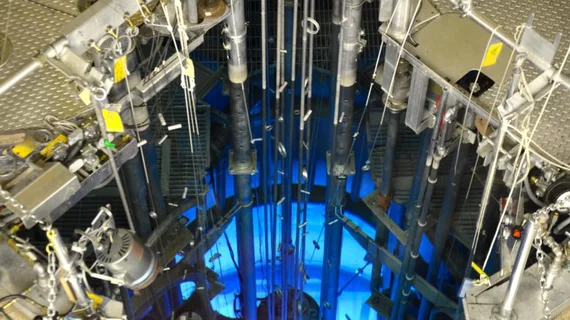Missouri reactor establishes only domestic supply of I-131 radioisotope
After more than 30 years, a domestic supply of the radioisotope Iodine-131 (I-131) is now available for diagnostic imaging and thyroid cancer treatment.
The University of Missouri Research Reactor (MURR) just shipped its first batch of I-131, a widely used radiopharmaceutical for cancer and hyperthyroidism treatment, making it the only supplier of the radioisotope in the U.S., and the first domestic supplier since the 1980s, according to a MURR news release.
First approved by the FDA in 1951, I-131 is naturally absorbed by thyroid glands and can be targeted directly to thyroid tumors for easier removal of cancerous tissue. However, its eight-day half-life makes stockpiling nearly impossible and its transfer difficult as well.
The MURR is one of the few suppliers of I-131 across the globe, which sends the radioisotope to drug manufacturers who then supply radiopharmaceuticals for distribution to hospitals and patients.
“Having MURR as a domestic producer for I-131 provides a much higher level of stability and reliability in the U.S. for this important isotope,” said Steve Laflin, president and CEO of International Isotopes (INIS). “INIS has been supplying I-131 throughout the U.S. for nearly 15 years using only foreign sources of supply. We are pleased to have an opportunity to enter into a long-term supply agreement, and INIS plans to utilize MURR as one of our major suppliers for I-131 in the future.”

